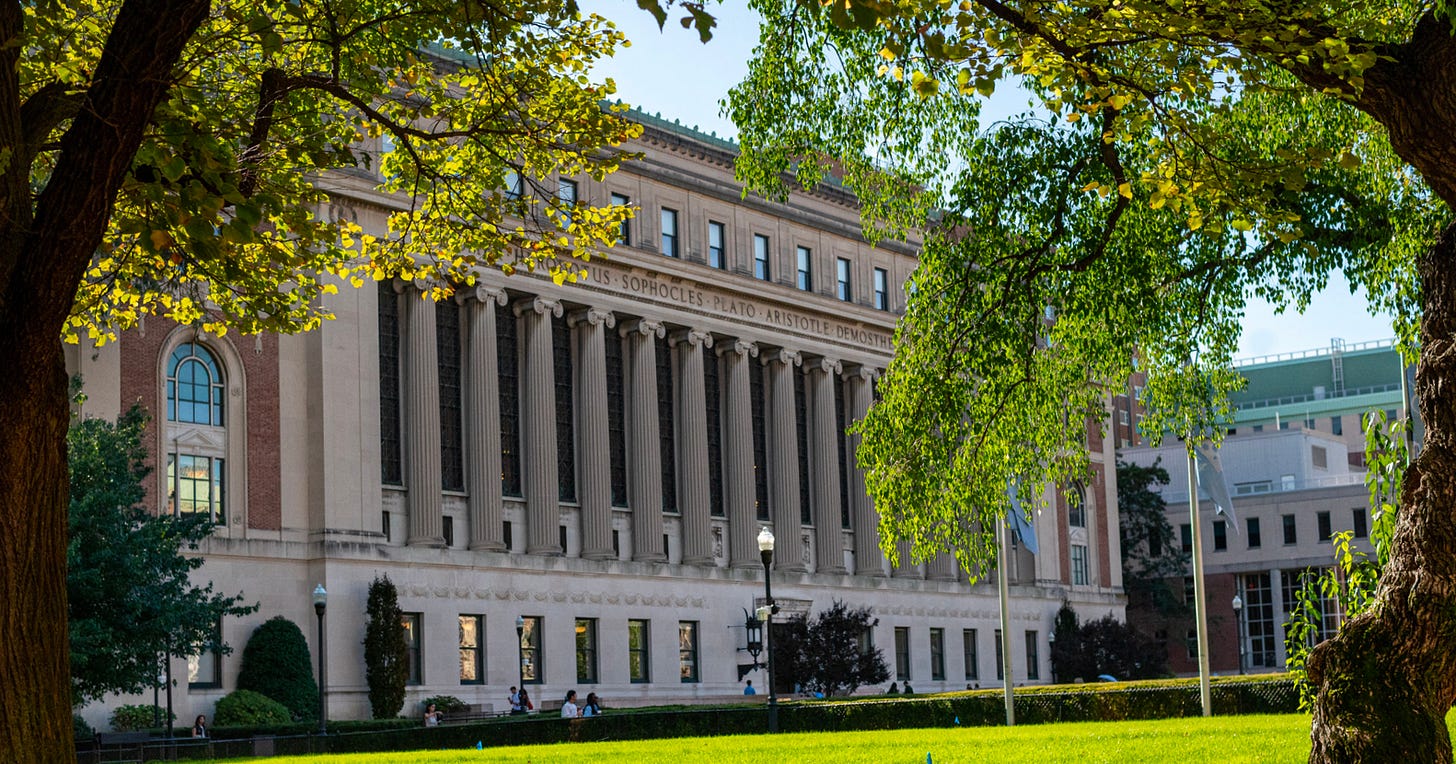Our Free Speech Crisis
Why the fight for free speech is the ground we stand on together.
Dear Reader,
Free speech has been the primary subject of Sundial’s work since the release of our first print issue in the spring of 2024. In these pages, we’ve written about self-censorship, the pitfalls of ideological orthodoxy, and most importantly, why we believe free speech is the issue of our generation.
Last month, after more than a year and a half in the national media spotlight, Columbia was dealt another, though deserved, blow: The Foundation for Individual Rights and Expression (FIRE) ranked Columbia and Barnard as dead last in the nation for college free speech climate. Speaking with my ideologically diverse circle of friends and colleagues, however, I came to the realization that this ranking is deeply misunderstood.
On the left, I’ve heard the repeated sentiment that our abysmal ranking is the result of Columbia’s settlement with the Trump administration. The feeling among the campus left—rooted both in anxiety and reality—is that one op-ed, snapshot of your face at a disruptive protest, or regrettable social media post can land you in hot water.
Among right-leaning students, the story is completely different: With Trump’s aggressive and laser-focused national agenda, openly identifying as conservative has never been more fraught. For these students, being publicly right-leaning, even with Trump in power, is flattened into complete agreement with and complicity in his actions. This has resulted in an ever-worsening culture of ideological and social demonization, cutting off debate before it can begin.
Despite what many have insisted to me since my first days at Columbia, free speech is not merely a conservative issue. It indisputably affects all of us. But more than this, it is the prerequisite for addressing the polarization that has taken Columbia’s tradition of intellectual exchange hostage. Such polarization extends to how we internalize what lies at the core of this free speech crisis: The fact that each of us experiences it differently.
Yet, with this stark realization comes something inspiring: If every one of us suffers from Columbia’s free speech climate, that means we all also have a stake in its repair. No matter who you are or what you believe, there’s something in it for you, for all of us.
It is with this diagnosis of Columbia’s free speech crisis that we bring to you our most intellectually expansive issue yet, “The Cost of Silence.” Within these pages, you will find a carefully written and impassioned collection of articles that respond to the unique historical moment in which we find ourselves. Four of our writers offer their reflections on the Columbia community’s reaction to Charlie Kirk’s assassination, all with profoundly distinct viewpoints. Deputy Editor Imaan Chaudhry delves into Sundial’s day at the Columbia Academic Freedom Council Conference and Awards Ceremony, unpacking the stories of the awardees who were punished for expressing their right to free speech. You’ll also find a timely analysis of free speech and the campus left by Staff Editor Nikos Mohammadi, who conducted a Sundial exclusive interview with Chris Cutrone, Chief Pedagogue of the Platypus Affiliated Society.
As you read through this issue, we implore you to ask yourself: Why is free speech the issue of our generation? We feel that in these pages our writers ponder the answer—however complex or concerning—to this question.
For the staff,
Alex Nagin
Editor-in-Chief
Mr. Nagin is a senior in the Dual BA program with Trinity College Dublin studying political science and Russian. He is the editor-in-chief of Sundial.



